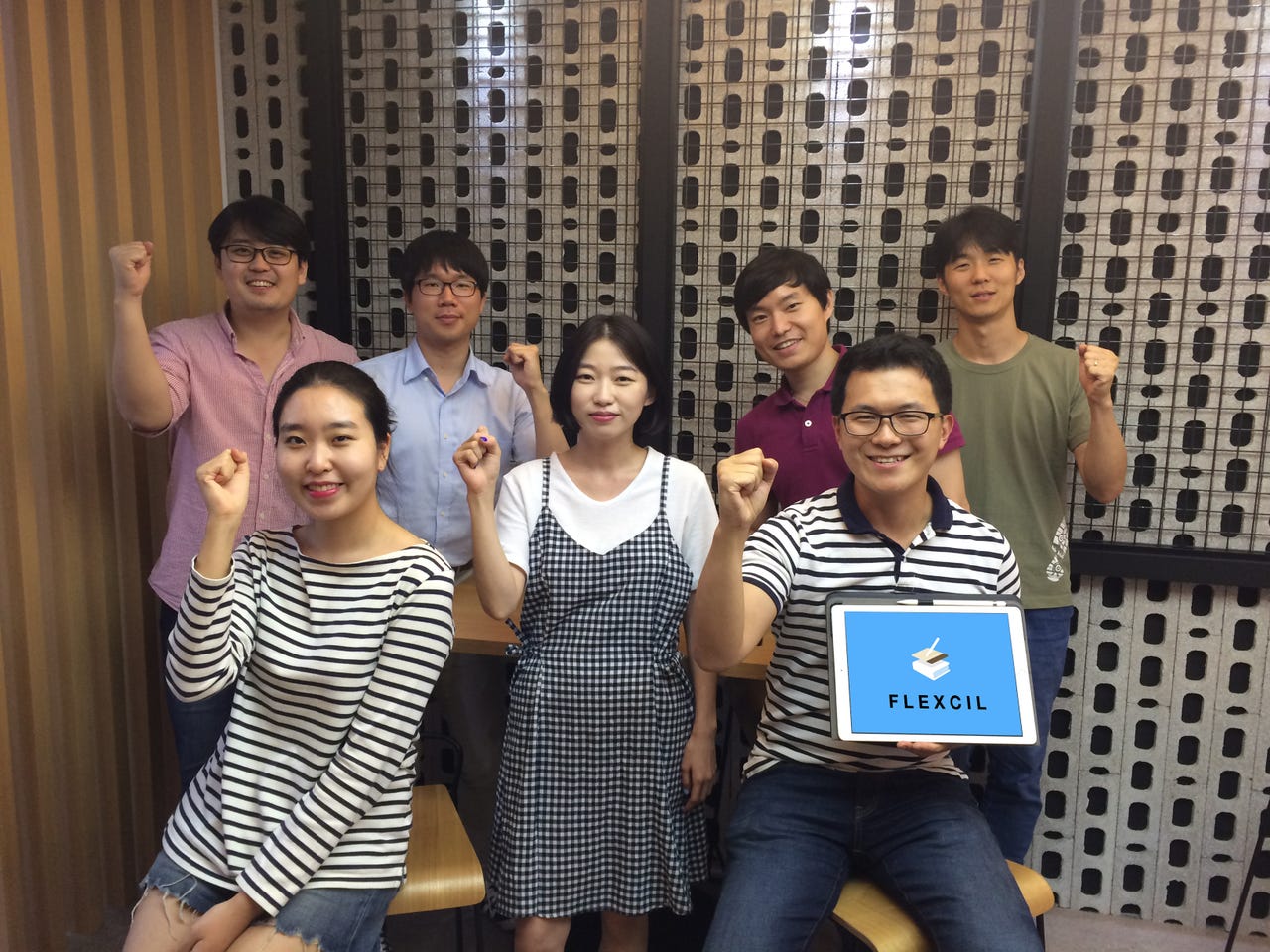PDF edit app Flexcil eyes global education market


The Flexcil team.
Paper is far from dead in academia. E-books abound for reading, but when it comes to taking notes and studying academic papers, there are limited alternatives to the good-old pen and paper.
Isaac Lee, founder and CEO of South Korea's Flexcil, found that although there are plenty of note taking and editing apps for the general user, there wasn't a version that specifically caters to the needs of university students.
The inspiration for Flexcil came from Lee's own experience as a graduate student, he told ZDNet.
"When I was doing intense studying of citation-heavy academic papers, I just couldn't read them and absorb them all in the PDF format. I always resorted to the print medium to read and take notes."
"In the age of iPad, why do users have to resort to paper?"
In 2015, Lee founded Flexcil, a PDF annotating app designed specifically for students. It allows PDF files to be uploaded via an app. The user can scribble notes, highlight text using a touch pen or their fingers, and "drag & drop" text to a separate notepad.
Currently available only for iPad, the company is planning to launch versions for the iPhone and web browser next month. Users outside of South Korea account for 61.6 percent of total users as of July.
Flexcil offers a free version and paid version for $9.89. About 3 percent of total users currently use the paid version, but the CEO is confident that this will increase with the launch of the iPhone version and another version for Google later this year.
"We are focusing on retention. We don't suggest the use of long press, unlike similar services, so we are trying to improve usability for new users," Lee said. "We are late into the game, so another thing we are trying to do is listen to user feedback and increase the quality of the app."
No long press: circle and keep calm
The key differentiating point of Flexcil from its rivals is that it doesn't recommend the use of the long press. Long press is a favourite for copying text on touch devices, but Flexcil found that for its specific audience -- students -- the time delay was actually an annoyance.
"Our main target is those studying academic papers. Students studying usually swap from the PC to their iPads to scrutinize and focus better on the paper they are studying," Lee said. "These papers are usually difficult, so they prefer the pen. They cut and paste extensive selections from these papers and highlight them. When they are focused, they don't want that 1 to 2 second delay. They want to do it quickly and move on."
Flexcil suggests the "drag & drop" feature, where users can circle the text and drag it to the sides of the original PDF file to their notepad at the side of the screen. Last year's launch of Apple Pencil has increased the use of touch pens for iPad users, and this number will only continue, Lee said.
And despite news of the market shrinking, tablets will remain a staple, especially for students, according to the CEO.
"Students use their iPads and PCs side-by-side, swapping depending on the task at hand. New buyers for tablets may be declining, but it's because older users retain their older models longer."
Lee is planning to fly to MWC San Francisco next month to promote the app and find new partnerships. The goal by next year, after Flexcil gains more traction and the cloud becomes available within 2017, is an education platform that offers digital textbooks for users.
"I am meeting big publishers in the US, such as Pearson, for possible partnerships. Digital book rental service is big in the US, because students can't afford the $20-30 textbooks," said Lee.
"But the problem is, for Amazon, you can only rent digital books on Kindle. And Kindle is not designed to be the best for editing notes. We want to offer these to a larger audience through partnerships so that students can not only have access to digital books easier but study them and edit them.
"We want them to have the ease-of-use of the analogue while getting the most out of digital."